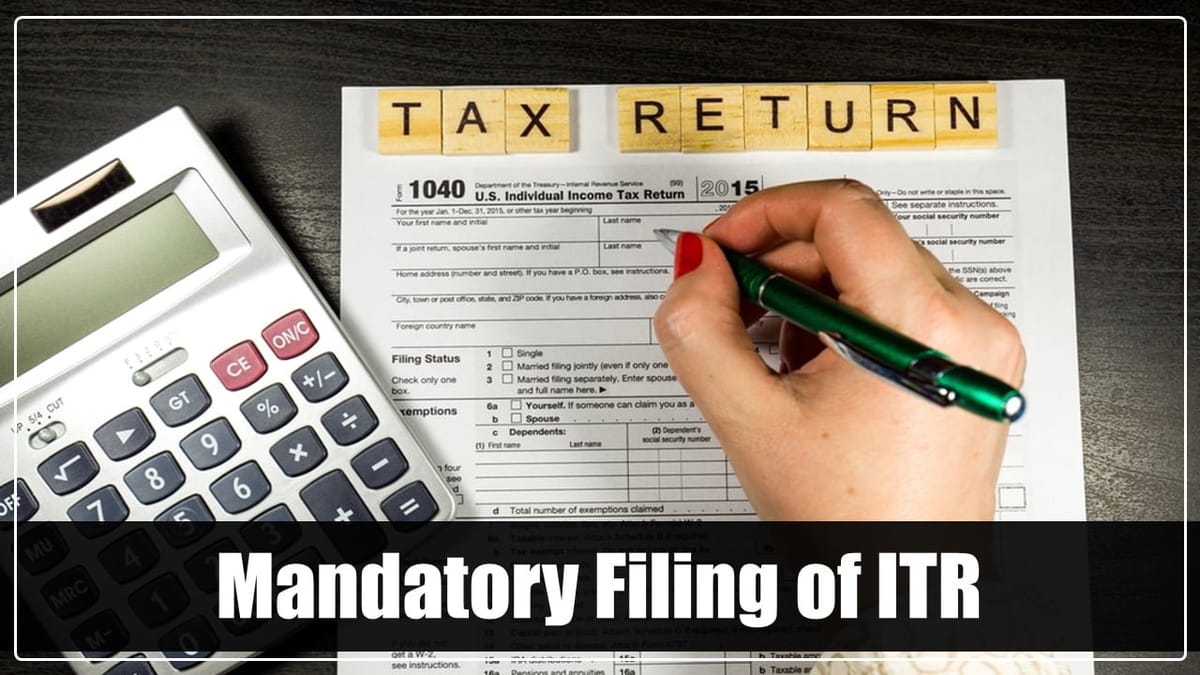If your gross taxable income exceeds the basic exemption limit, or if you engage in certain specified transactions, you must file an income tax return (ITR).
Reetu | Jun 18, 2024 |

ITR Filing: ITR should file if Income is less than Rs.7 lakh with Nil Income Tax?
If your gross taxable income exceeds the basic exemption limit, or if you engage in certain specified transactions, you must file an income tax return (ITR). However, this does not necessarily imply that you must pay income tax.
However, this does not necessarily imply that you must pay income tax. This is due to a tax rebate under Section 87A of the Income Tax Act of 1961, which is available if your net taxable income is less than Rs.5 lakh under the old tax regime or Rs.7 lakh under the new tax regime.
The highest tax rebate is Rs.12,500 under the old tax regime and Rs.25,000 under the new tax regime. As a result, if your income falls within the defined range, you will not be required to pay any income tax. So, even if your tax liability is zero (due to the tax rebate), you must still file an ITR.
Taxpayers generally believe that if no tax is owed, filing an ITR is unnecessary.
The tax filing deadline for the current assessment year is approaching. Individuals who are not required to conduct an income tax audit must file their ITR by July 31, 2024, for the financial year 2023-24 (AY 2024-25). Aside from income, there are other considerations when submitting an ITR becomes mandatory.
If your gross total income (before deductions under Chapter VI, e.g., sections 80C, 80D, etc.) exceeds the basic exemption limit, you must file an ITR.
Here is the basic exemption limit for several categories under the old tax regime in FY 2023-24 (AY 2024-25):
The basic exemption limit for taxpayers of all categories under the new tax regime is Rs.3 lakh in FY 2023-24 (AY 2024-25).
Here are some stated cases where you must file ITR regardless of your gross total income level:
If an individual’s annual bank deposit in one or more savings accounts exceeds Rs.50 lakh, they must file an ITR.
If your income from a profession surpasses Rs.10 lakh in a financial year, you must file an ITR.
If an individual’s electricity bill for the year exceeds Rs.1 lakh, they must file an ITR.
If a person’s TDS/TCS exceeds Rs.25,000, then filing an ITR is essential. Senior citizens, on the other hand, face a Rs.50,000 threshold.
Individuals who have an asset in a foreign nation, are beneficiaries of an asset in a foreign country, or have signing authority in any account located outside of India must file an ITR.
Individuals who spend Rs.2 lakh or more on international travel for themselves or others throughout the financial year are required to file an income tax return.
Example:
Assume you have a net taxable income of Rs.4.25 lakhs. Because this income is less than Rs.5 lakh or Rs.7 lakh, depending on the tax regime you choose, you will not be required to pay income tax because you will be eligible for a tax rebate under Section 87A. However, you must file an ITR if your gross total income exceeds Rs 2.5 lakh under the old tax regime and Rs.3 lakh under the new tax regime.
If you are obligated to file an ITR but fail to do so by July 31, 2024, you can file a belated ITR. If you do neither of them, certain consequences may occur.
The following are the consequences of non-filing of income tax returns:
Interest Penalty
According to Section 234A, if taxpayers do not pay their taxes on time, they will be required to pay 1% interest each month on the unpaid tax amount. Section 234B also allows for interest to be levied if advance tax is not paid on time.
Penalty
According to Section 234F, if the taxpayer fails to file their ITR by the required date, a Rs.5,000 late fee will be charged. However, if their yearly income is less than Rs.5 lakhs, late costs would be limited to Rs.1000. If their gross income is less than the basic exemption limit, no penalty is levied.
Carry Forward of Losses
When submitting a belated ITR, you cannot carry forward losses on stocks, futures, and options (F&O), among other things. A belated ITR, on the other hand, allows you to carry forward losses from house property.
Refund of Taxes
When filing a late ITR, you cannot carry forward losses on stocks, futures, and options (F&O), among other things. In contrast, a belated ITR permits you to carry forward losses from residential property.
Best Judgment Assessment
If you do not file an ITR, the income tax assessing officer may issue an assessment based on his best judgment. This means that the tax officer can estimate the taxpayer’s income and tax liability using the information available to him.
New Tax Regime now the default Tax Regime
If a taxpayer does not file their ITR and does not opt for the previous tax system by filing Form 10-IEA, their income tax will be calculated under the new tax regime, and they may be unable to claim gross deductions that would have been applicable to them.
In case of any Doubt regarding Membership you can mail us at [email protected]
Join Studycafe's WhatsApp Group or Telegram Channel for Latest Updates on Government Job, Sarkari Naukri, Private Jobs, Income Tax, GST, Companies Act, Judgements and CA, CS, ICWA, and MUCH MORE!"